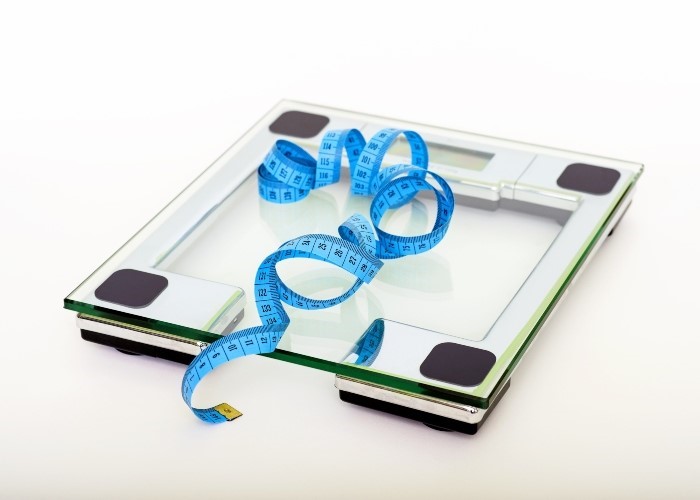New research has linked weight gain from early adulthood up to 40s or 50s to a lower risk of breast cancer before the menopause.
New research has linked weight gain from early adulthood up to 40s or 50s to a lower risk of breast cancer before the menopause.

The impact of weight
New research, funded by Breast Cancer Now and other collaborators, has suggested women who gain weight from early adulthood have a lower chance of developing breast cancer before the menopause than women whose weight remains stable.
Understanding the biological reasons why this happens could lead to new ways to prevent the disease and more accurate tests to assess women’s chances of developing breast cancer before the menopause.
The researchers highlight that women shouldn’t consider gaining weight as a way to prevent breast cancer. Putting on weight throughout adulthood increases the risk of breast cancer after the menopause, when breast cancer is most likely to develop, and higher weight also increases the risk of other cancers and other health conditions.
Time and weight
We already knew that being a higher weight as a young adult lowers a woman’s risk of developing breast cancer before the menopause. But how gaining or losing weight through life changes someone’s chances of getting premenopausal breast cancer has been unclear.
To answer this question, researchers collected information from more than 600,000 women, including their weight from at least two points in their life, and tracked whether they developed breast cancer over around 10 years.
Dr Minouk Schoemaker, who led the study, said: ‘The link between a higher body mass index and a lower breast cancer risk before the menopause has puzzled researchers for a while now. In our large-scale international study, we were able to tease out the effects in more detail than ever before.’
Researchers led by Dr Minouk Schoemaker and Professor Anthony Swerdlow at The Institute of Cancer Research (ICR), Dr Hazel Nichols at the University of North Carolina and Professor Dale Sandler at the US National Institute of Environmental Health Sciences, analysed data from 17 studies across the world including the Breast Cancer Now Generations Study in the UK.
They observed that weight gain between early adulthood (18–24) and 40s or 50s led to a decrease in risk of around 3–4% for each 5kg gained.
Understanding the results
These results suggest that levels of fat could be an important factor that determines the likelihood of women getting breast cancer.
Analysing the results, researchers took into account a variety of other factors that can change a woman’s chances of developing the disease. They looked at whether women had children and when, their starting weight, and family history of breast cancer. They also considered other lifestyle influences, such as smoking, level of physical activity and alcohol consumption.
Baroness Delyth Morgan, Chief Executive at Breast Cancer Now, explained the importance of these findings: ‘These are really important findings that bring us a step closer to understanding the fundamental role of weight on the risk of breast cancer in younger women.’
While weight gain from ages 18–24 onwards was linked to lower risk, weight gain from the ages of 35–44 onwards didn’t affect women’s chances of developing breast cancer before the menopause. This suggests that it could be the length of time someone has a higher weight that is linked to a lower breast cancer risk.
Minouk further explained their findings: ‘We found that while higher weight in early adulthood was most strongly linked to reducing breast cancer risk, later weight gain had an independent effect in bringing risk down further. But we know that the protective effect of a higher weight is reversed after the menopause when being heavier increases women’s breast cancer risk.’
Next steps
The researchers suggest that the effect a woman’s weight in early adulthood has on her breast cancer risk may be related to changes in her breast composition during puberty or altered levels of hormones in adulthood. But we need more research to fully understand why weight can have this effect.
‘We now urgently need to understand the biological reasons why body size and weight gain both lower women’s risk of breast cancer before the menopause,’ said Delyth.
It’s really promising that the discovery of this protective effect could help us develop new preventive therapies or better risk tests to identify those who may benefit most from screening or risk-reducing steps.
‘In the meantime, everyone can help keep their risk of breast cancer as low as possible by being more active, drinking less alcohol and keeping to a healthy weight.’
The study is published in the International Journal of Cancer.
Breast Cancer Now thanks M&S for their generous support of the Breast Cancer Now Generations Study.
If you have any concerns about breast cancer, you can speak to our expert nurses on our free Helpline at 0808 800 6000 or by using our confidential Ask Our Nurses service.